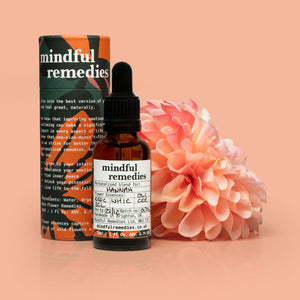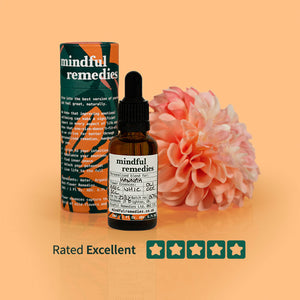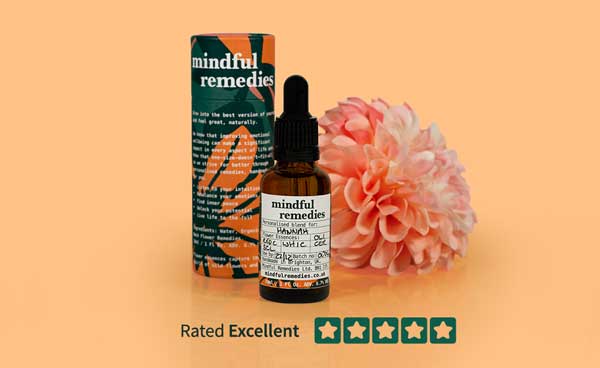your basket
- choosing a selection results in a full page refresh

Mimulus is the Bach Flower Remedies for fear and apprehension where those fears are specific and known. Below we take a closer look at the Mimulus flower remedy, who it might be helpful for and what you might expect when taking it.
Mimulus Bach flower remedy is indicated for people who are fearful or anxious about something specific. Mimulus is always for a known fear i.e. you know what you’re anxious about. This may be anxieties about health, money, relationships, travel, death or a phobia that is causing you anxiety.

Mimulus can help ease fear and anxiety in all sorts of situations. You might want to consider Rock Rose in addition if that anxiety is sheer terror or panic inducing. Where you have more general anxieties with no known cause, you should look at Aspen.
Mimulus is also considered a ‘type’ remedy i.e. for people who are of a certain personality or type. The Mimulus person is shy, nervous and may blush or stammer. They dislike social situations and may have social anxiety.
The positive potential of Mimulus is to face your fears with quiet courage and help to overcome nervousness.
Click the button below to incorporate this remedy into your personalised blend. At Mindful Remedies you can create your own personalised flower remedy blend choosing up to seven flower remedies in a treatment bottle.
Aspen is for anxieties where there is no known cause, it is more of a general foreboding, apprehension and a constant feeling of unease. You don’t exactly know why you’re anxious though – which is the difference between Aspen and Mimulus.
Agrimony is for people who hide their worries behind a smile. They put a brave face on their problems and pretend to the world that everything is fine, when underneath they are suffering mental torment. This sometimes comes out at night when the person isn’t distracted by their busy daytime life.

Rock Rose is for panic and terror where the person feels suddenly escalating anxieties which leave them struck by terror or panic attacks. The person’s fears may start out as more needing Mimulus or Red Chestnut but have now escalated to a more extreme state.
White Chestnut is for people who have an overactive mind and they constantly think things over in their head. Their brain just won’t shut off and they replay events or issues round in their mind. This can lead to insomnia.
You are anxious about your loved ones and overly concerned for their safety. You can’t stop worrying about your family and are very protective about their welfare. For example, worrying about children being out on their own. Whereas these fears are normal, people who need Red Chestnut have escalated these anxieties out of proportion to the point where they’re very detrimental to their mental wellbeing.
Dr Bach created the flower remedy system in the 1930s. There are 38 different flowers – each relating to a different emotional state. They are 100% natural, have no side effects and won’t interact with any existing medication. They are gentle in their transformation.
When selecting the flower remedie look at what emotions are impacting you at this current time. The flower remedies work like peeling an onion – address the outer layer first and slowly work inwards to the deeper layers. You can select up to seven remedies to work with at any one time.
At Mindful Remedies we create only personalised remedies and you can select any of the 38 remedies within a bottle.

Since 2021, Lucy Edwards, a qualified Bach Flower Practitioner and the driving force behind Mindful Remedies, has connected with clients across the world. Crafting thousands of personalised remedies, Lucy has supported individuals' emotional wellbeing, shipping remedies to far-flung places like the USA, Thailand, and Australia.
Lucy is readily available for conversations, offering personalised advice to guide you on the path to holistic wellness. It's important to note that she's not only qualified but also registered with the Bach Centre, ensuring that every consultation and remedy adheres to Dr Bach’s original guidelines for expert care and efficacy.
Exclusive pricing 20% off your first subscription order and 5% off all future orders
VIP treatment Receive personalised advice from Lucy, free gifts & 15% off gift vouchers
Easy to manage Edit remedy, change schedule, pause or cancel at any time
Exclusive online workshops Access to workshops focusing on emotional wellbeing, guided by Lucy
Early access to new products Be the first to try out new remedies or wellness products, before anyone else



